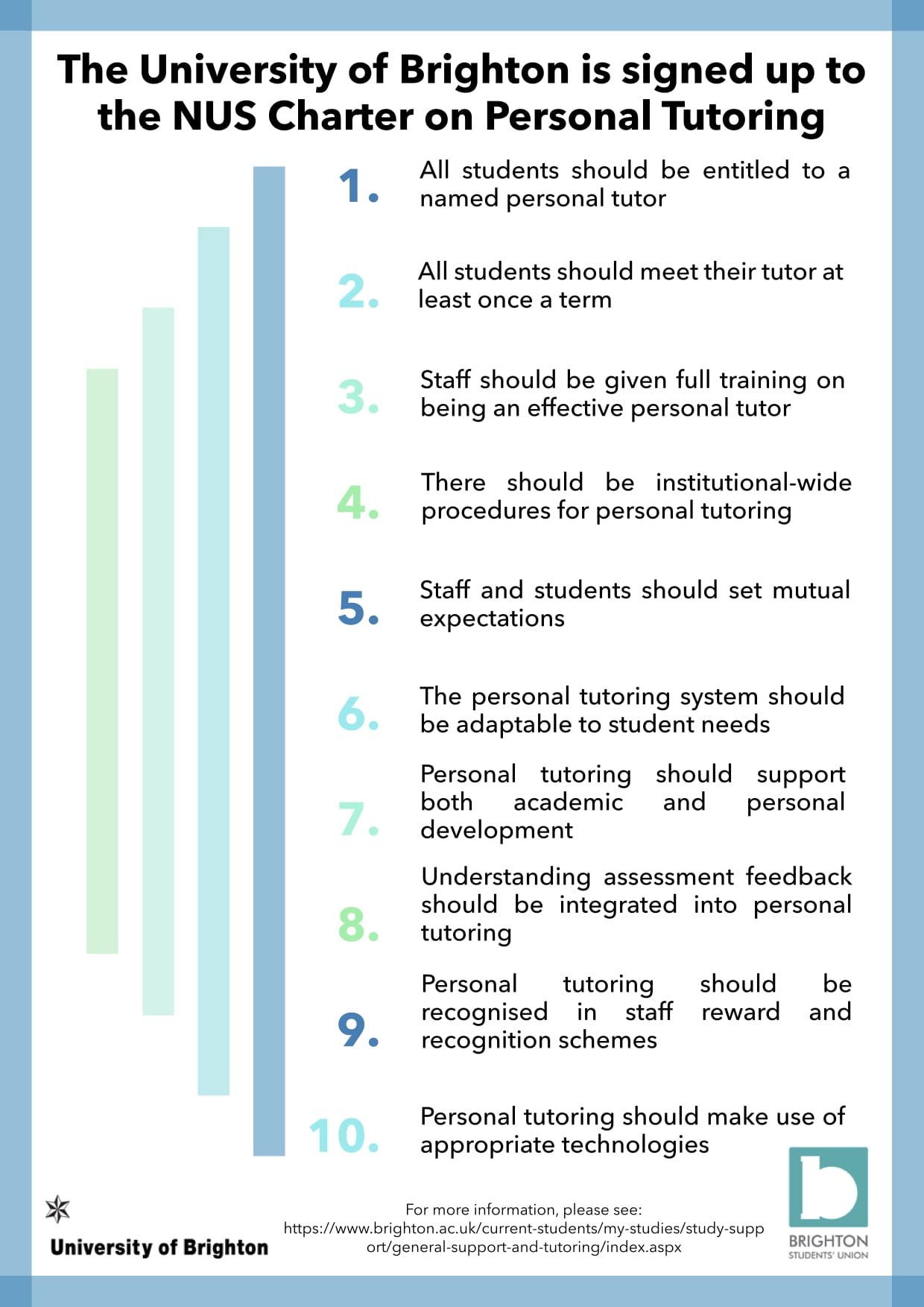The language and terminology we use is constantly under review. The Race Terminology Group has recently recommended the use of ‘minority ethnic’ in preference to the term BAME. More information here
Tips for supporting Minority Ethnic Student Achievement with Personal Academic TutoringIn addition to the suggestions below, see also this recent guide published June 2020 Supporting Black, Asian Minority Ethnic students during the COVID-19 crisis – a short guide. 1. Learn student names See the advice about this on the main Success for All page. If you’re still not sure, ask, and whilst it’s important for students to do what they are comfortable with, if they are using an anglicised version of their name, ask if they would rather use their given name or the anglicised version of it. 2. Assess your own biases Unconscious bias describes a learned set of behaviours for classifying people unfavourably according to race, gender, age, ability, sexual orientation, and other characteristics. It is understood to be an outgrowth of a common human behaviour for classifying the overwhelming amount of information we process each day, which has nonetheless produced a range of identities that are unfairly discriminated against. Unconscious bias operates via a subset of biases, including: affinity bias, where one person has a preference for another because they perceive them to be alike; confirmatory bias, where someone searches for information to confirm their pre-existing beliefs; and social categorisation, when someone processes their experience of another person into an in-group or an out-group. Understanding and being aware of your unconscious biases will help you to develop a more equitable and inclusive relationship with your students. Harvard University has an online resource for testing your own unconscious biases, which is available at: https://implicit.harvard.edu/implicit/. The University of Brighton also has online training resources for assessing unconscious bias, as well as Equality & Diversity workshops that regularly run across campuses. 3. Be aware of microaggressions and stereotype threat Microaggressions are defined by Derald Wing Sue as ‘brief, everyday exchanges that send denigrating messages to certain individuals because of their group membership’. They are often subtle, verbal, nonverbal, and/or visual actions that occur in everyday life, which signal the presumed right of the person who commits the microaggression to exercise power over people with historically marginalised identities. Microaggressions are frequently underpinned by a stereotyped image of the person with the marginalised identity that is held by the person who commits it. One example of this would be a white tutor talking in a different and less complex register to a black student about a topic than when discussing it with a white student, because of what Sue describes as a stereotype of the former group as ‘lack[ing] global abstract/conceptual reasoning’. Such a stereotype could lead to the microaggressive act of speaking in a patronising manner about a topic when discussing it with a black student. The University of Brighton’s online training resources for assessing unconscious bias, as well as its Equality & Diversity workshops that regularly run across campuses are again useful for assessing and addressing microaggressions and stereotype threat. 4. Consider opportunities for students to work with minority ethnic role models The University of Brighton runs a mentoring scheme called Momentum, which is designed to build students’ confidence and boost employability. Students are matched with a volunteer professional who is trained to support them in working towards goals and building confidence. Momentum is available to Minority Ethnic students. The time commitment is twelve hours over six months starting in late November and finishing in May (equivalent to an hour’s meeting every two weeks). You can find out more about Momentum at https://www.brighton.ac.uk/careers/mentoring/momentum-programme/index.aspx. The university also has an identity mentoring education programme, which offers six months of mentoring to students who identify as Black Asian Minority Ethnic and who are trainee teachers. The programme starts in November and concludes in May. The programme gives students the opportunity to meet with a BAME person who lives or works locally and discuss issues in confidence, with around two hours per month of mentoring. This is a good opportunity if you have a tutee who is a trainee teacher at the university. More details can be found at: In addition to these mentoring schemes, the University of Brighton’s Students’ Union also has a wide range of societies that students can join, which may help students to connect with other minority ethnic students. Useful resources The information in this document has been drawn from the following resources: Cooper, K., Haney, B., Krieg, A. and Brownell, S. (2017). What’s in a Name? The Importance of Students Perceiving That an Instructor Knows Their Names in a High-Enrollment Biology Classroom. [online] Available at: https://www.ncbi.nlm.nih.gov/pmc/articles/PMC5332051/ [Accessed 11 Dec. 2018]. Brighton.ac.uk. (2018). BAME education programme. [online] Available at: https://www.brighton.ac.uk/careers/mentoring/bame-education/index.aspx [Accessed 11 Dec. 2018]. Brighton.ac.uk. (2018). Momentum programme. [online] Available at: https://www.brighton.ac.uk/careers/mentoring/momentum-programme/index.aspx [Accessed 11 Dec. 2018]. Implicit.harvard.edu. (2018). Project Implicit. [online] Available at: https://implicit.harvard.edu/implicit/ [Accessed 11 Dec. 2018]. Raratutor.ac.uk. (2018). [online] Available at: http://www.raratutor.ac.uk/wp-content/uploads/2017/12/SRHE-SD-EB-061217.pdf [Accessed 11 Dec. 2018]. Sue, Derald Wing. (2010). Microaggressions in Everyday Life: Race, Gender, and Sexual Orientation. Hoboken: John Wiley & Sons. Ucl.ac.uk. (2018). [online] Available at: https://www.ucl.ac.uk/teaching-learning/sites/teaching-learning/files/ucl_guide_to_bme_belonging_2017_ucl_equality_diversity_and_inclusion.pdf [Accessed 11 Dec. 2018]. |
Dr Bhavik Patel gives his key tips for new Personal Academic Tutors  Students discuss academic development through Personal Academic Tutoring |


